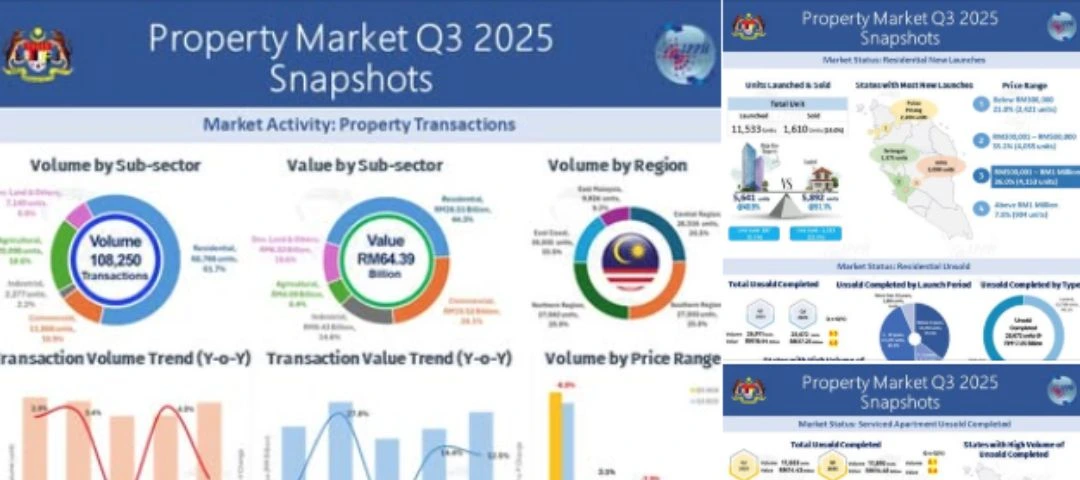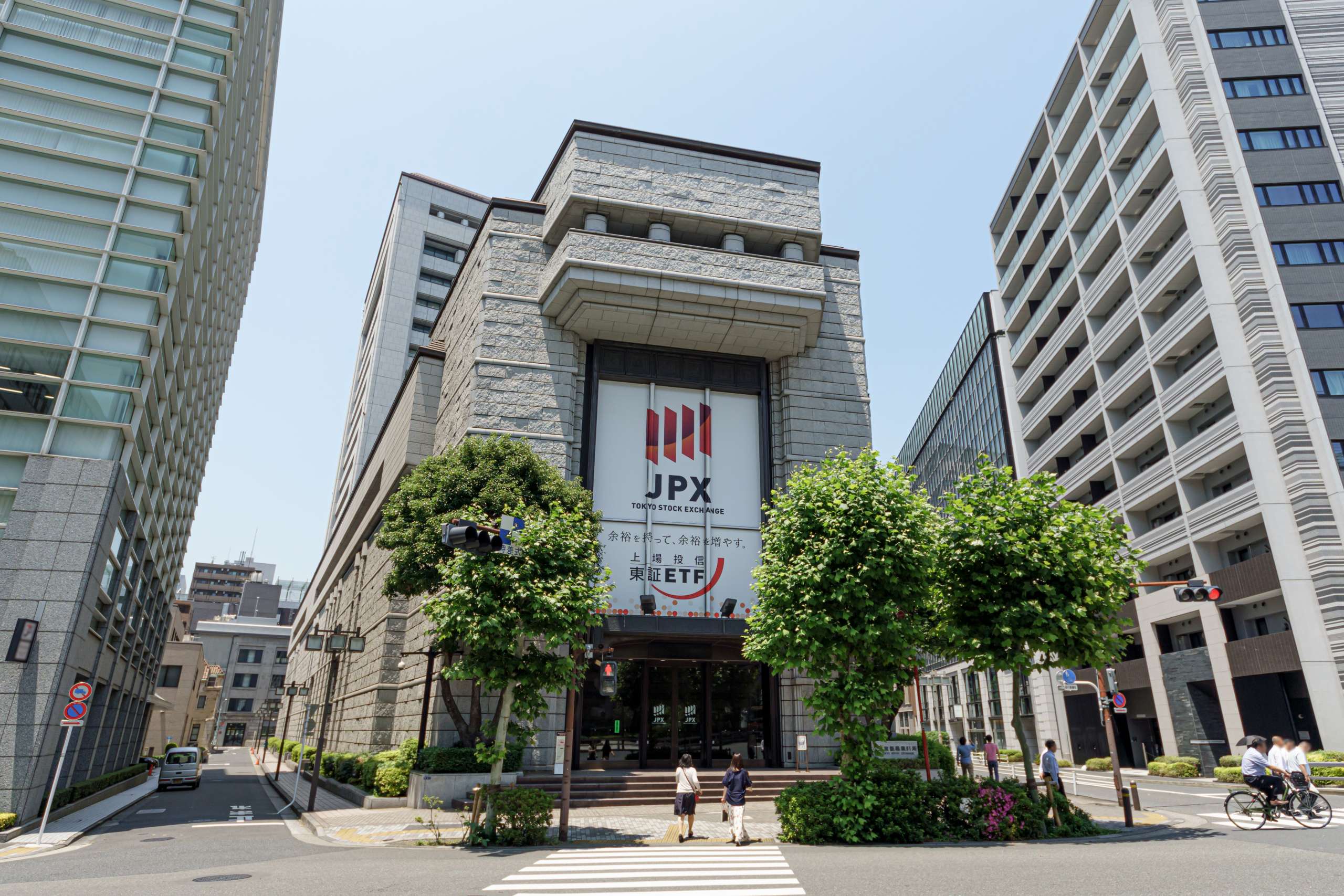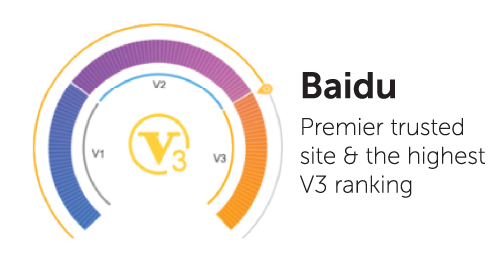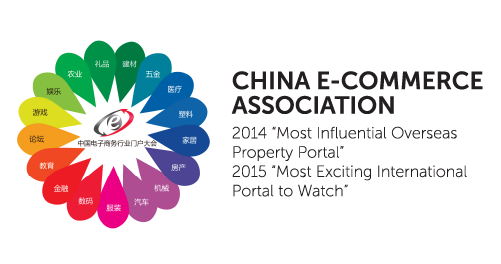Your Trusted
Real Estate Partner in
Bulgaria
IQI Bulgaria provides comprehensive real estate services and makes your real estate process easy with our professional team
Discover
Your one-stop property solution
Free Consultation with an Agent
Find my dream home through an agent
Sell or Rent property
Have an agent list my property
Manage My Deal
Follow up on my buying process
Mortgage Calculator
I want to calculate my budget
Register as a Real Estate Negotiator
I want to become a real estate negotiator in IQI
Our story
Award-winning PropTech Agency

IQI goes beyond conventional boundaries.
With offices in 30+ countries and 60,000+ real estate negotiators and growing, we have a unique perspective into international best practices in real estate, allowing our team to become global real estate entrepreneurs through cross border property investment and transactions.
Countries
Agents
Projects
All-in-one
Connecting you globally
Invest with us
Invest on a platform with over 6 million global properties from more than 111 countries to empower yourself as a citizen of the world.
Advertise with us
Maximise advertising efficiency and lead conversion through our buyers using data.
Testimonials
Hear from our happy buyers
Learn
Tips and Guides
 Stamp Duty Waiver Extended to 2027: What Every First-Time Homebuyers Should Know
Stamp Duty Waiver Extended to 2027: What Every First-Time Homebuyers Should Know
TLDR: Malaysia has extended the 100% stamp duty exemption for properties up to RM500,000 until 31 Dec 2027, giving first-time homebuyers major upfront savings. In a move to make homeownership more accessible, the government has extended the stamp duty exemption for first-time homebuyers purchasing residential properties up to RM500,000 - now valid until 31 December 2027. This extension, part of the broader measures under Budget Malaysia 2026, is designed to ease upfront costs and encourage property ownership among Malaysians. But what exactly does this exemption mean for first-time buyers - and for investors eyeing sub-RM500,000 properties? Read on to understand the full impact, along with what you should watch out for before jumping in. Key Takeaways: The stamp duty exemption for first-time homebuyers on properties priced up to RM500,000 has been extended until 31 December 2027. The exemption covers both the instrument of transfer and the loan/financing agreement which significantly reducing upfront costs for eligible buyers. For first-time buyers, this means immediate savings (potentially thousands of ringgit), easing the burden of initial home purchase costs. For investors, the exemption may make the lower-cost segment (sub-RM500,000) more attractive: lower entry cost, possibly stronger rental demand, and better yield potential. Stamp Duty Waiver in Malaysia: What is Stamp Duty? Stamp Duty Extended Under Budget 2026 What This Means for First-Time Homebuyers? How to Get Stamp Duty Waiver as a First-Time HomebuyerBut, What About Investors? What Buyers and Investors Should Consider ConclusionWhat is Stamp Duty? Stamp duty is a tax imposed on certain legal documents related to property transactions, most notably, the instruments of transfer (when ownership changes hands) and loan or financing agreements (when a mortgage is involved). Typically, buyers pay stamp duty at standard rates, which adds to the overall cost of purchasing a property. In the context of home-buying, stamp duty can amount to several thousands of ringgits. A substantial cost on top of other expenses like down payment, legal fees, valuation fees, and loan processing fees. The exemption announced under the 2026 budget effectively removes this cost component for eligible first-time buyers (up to a certain property value), making the initial financial barrier lower when acquiring a home.Stamp Duty Extended Under Budget 2026 Under Budget 2026, the existing exemption on stamp duty for first-time homebuyers purchasing residential properties priced at RM500,000 or below has been extended for two more years, until 31 December 2027. What is covered The exemption applies to both the instrument of transfer (i.e., transfer of ownership) and the loan/financing agreement. The purchase must be of a “first residential home”. Meaning the buyer must be a first-time homeowner, and the property price must not exceed RM500,000. Implementation timeframe Sale and Purchase Agreements (SPAs) executed between 1 January 2026 and 31 December 2027 are eligible. This extension gives prospective first-time buyers a wider window to plan, secure financing, and complete their purchase without worrying about stamp duty on two of the biggest documents in the property transaction. What This Means for First-Time Homebuyers? For first-time buyers, this announcement is a major relief and potentially a strong incentive to step into the housing market now, rather than later. Lower upfront cost. With stamp duty waived on both the ownership transfer and loan documents, buyers save potentially thousands of ringgits. This makes the initial outlay for a home significantly lighter. Reduced financial pressure. Buying a first home is often daunting. Without the burden of stamp duty, monthly loan repayments and other costs become more manageable, lowering the risk of overstretching financially. More flexibility post-purchase. The money saved from stamp duty can be redirected toward essentials like furniture, renovations, or settling-in costs. Making the transition into a new home smoother and less stressful. In short, for many Malaysians, this extension makes homeownership far more achievable. How to Get Stamp Duty Waiver as a First-Time HomebuyerIf you’re buying your first home, the stamp duty waiver is applied during the purchase process, not through a separate application.Step 1: Confirm You’re a First-Time BuyerYou must not have purchased or owned any residential property before. This applies to both individual and joint buyers.Step 2: Purchase an Eligible PropertyThe property must be:ResidentialPriced at RM500,000 or belowPurchased within the eligibility period (now extended until 2027)Step 3: Appoint a LawyerYour lawyer will:Prepare the Sale and Purchase Agreement (SPA)Submit the necessary documents to LHDN (Inland Revenue Board)Apply the stamp duty exemption on your behalfNo separate application is required from you.Step 4: Sign the Statutory DeclarationYou’ll need to sign a Statutory Declaration confirming that you are a first-time homebuyer. Providing false information can result in penalties.Step 5: Enjoy the Stamp Duty SavingsOnce approved, 100% of the stamp duty on the SPA and loan agreement will be waived.But, What About Investors? Although the exemption is ostensibly for first-time “homebuyers,” the ripple effects could benefit savvy investors especially those targeting lower-cost units. Attractive entry point. With lowered transaction costs, properties in the sub-RM500,000 segment become more attractive for investment. You get to stretch your capital further. Potential for higher yield. Affordable properties typically attract tenants seeking lower rents. If rental demand is strong, investors stand to benefit from steady demand and potentially good rental yields. Opportunity for bulk acquisition. For investors with capital, this could be a window to snap up one or more units while the economic incentives remain active. However, as mentioned by the government, the exemption is only applied for first-time homebuyers. So strictly speaking, investors (who already own one or more properties) may not qualify for the stamp duty waiver. That said, lower competition in the sub-RM500,000 segment (if more first-time buyers move quickly) might indirectly create opportunities. What Buyers and Investors Should Consider While the stamp duty waiver is a significant benefit, it isn’t a guarantee as 100% good investment or a wise purchase. Here are some aspects to consider carefully: i) Loan affordability: Even without stamp duty, you’ll still need to ensure that your loan repayment is manageable over the long term. And don’t forget other costs like maintenance, utilities, and interest. ii) Location and growth potential: A low price is attractive, but only if the property is in a location with stable or rising demand, good infrastructure, and potential for capital appreciation. iii) Fit with lifestyle or investment plan: Is the property suited for your lifestyle (for own-stay)? Or for investment, what will it attract tenants, and at what would the rental rate be? Convenience, amenities, and accessibility matter. iv) Market conditions: While incentives help, overall real-estate market conditions like supply and demand, economic outlook, interest rates will high-likely affect long-term returns. In other words: the exemption makes entry cheaper, but due diligence remains essential to ensure the property remains financially sound in the long run. Feature Details Who benefit First-time buyers who are Malaysian citizens purchasing their first residential home Eligible property value Up to RM500,000 Documents exempted Instrument of transfer (ownership) AND loan/financing agreement Period of exemption SPAs executed between 1 Jan 2026 – 31 Dec 2027 Financial benefit Save thousands of ringgits in stamp duty = lower upfront cost Ideal for First-time homebuyers; possibly investors eyeing sub-RM500,000 units (with caution) ConclusionIn conclusion, the extension of the 100% stamp duty exemption for first-time homebuyers under Budget 2026 is more than just a small perk. It represents a meaningful push by the government to make homeownership more accessible. For many Malaysians, especially first-time buyers, this could be the window of opportunity to finally step onto the property ladder with less financial burden. For investors, while the waiver itself may not directly apply, the policy could shift demand and dynamics in the affordable property segment, creating indirect opportunities. That said, the exemption should not be the only factor in your decision. Good location, realistic loan planning, and a clear understanding of your long-term goals must still guide your property purchase. Use this incentive wisely and you could turn it into a solid foundation for homeownership or investment success. Are you a first-time homebuyer or need expert guidance on purchasing a house? We are here to assist you! Fill out the form below, and our representative will approach you soon![custom_blog_form]Continue Reading: Budget 2026 Malaysia: RM672 Million for Property & Urban Development GrowthStamp Duty Malaysia Increased in 2025! What You Need to Know!Tenancy Agreement in Malaysia: Fees, Stamp Duty and More!
Continue Reading
 NAPIC Q3 2025: What Does It Mean to the Malaysian Property Market?
NAPIC Q3 2025: What Does It Mean to the Malaysian Property Market?
TL;DRNAPIC Q3 2025 data shows the Malaysian property market is stabilizing, not booming. While transaction volumes dipped slightly by 3.5%, the total transaction value surged by 12.5%, proving that serious buyers are picking up higher-quality assets. However, the overhang (unsold units) remains a concern, especially for high-rise apartments in Johor and Kuala Lumpur, suggesting buyers need to be selective in 2025.Does looking at property market data make you feel dizzy? You are not alone. Whether you are thinking of buying your first home or looking for a solid investment, the numbers can be confusing. Are prices going up? Is the market crashing? Should you wait?The data is officially out, and it paints a picture of a "selectively" strong market. While fewer people are buying, those who are are spending much more.We analyzed the huge NAPIC Q3 2025 report so you don’t have to. Here is exactly what the latest numbers mean for your wallet.Key TakeawaysHouse Prices are Stable: The Malaysia House Price Index (MHPI) grew by a tiny 0.1%, to 229.1 points, with an average house price of RM494,384.Smart Money is Moving: Transaction volume fell 3.5%, but transaction value rose 12.5% to RM64.39 billion, indicating a shift toward premium properties.Overhang Alert: The number of unsold completed homes rose to 28,672 units, valued at RM17.25 billion, driven mainly by condos and serviced apartments.Affordability Help: The Overnight Policy Rate (OPR) is lower at 2.75%, making loan repayments slightly easier for new buyers.NAPIC Q3 2025 Property Market Report1. Is the Malaysian Housing Market Recovering in 2025?2. How Did Transaction Volumes Change in NAPIC Q3 2025?3. Why Overhang Property Numbers Matter to Buyers4. Commercial & Industrial: The Hidden Gems5. Should You Buy Property in Malaysia Based on NAPIC Q3 2025?6. Frequently Asked Questions (FAQ)1. Is the Malaysian Housing Market Recovering in 2025?The short answer is: Yes, but it is taking a "breather" rather than sprinting.According to the NAPIC Q3 2025 Property Market Report, the market is currently in a "stabilisation" phase. This means we aren't seeing crazy price spikes (which is suitable for buyers), but we also aren't seeing a crash (which is ideal for homeowners).Let me give you an example to illustrate this: Imagine the property market is a car. In 2024, the car was speeding up. Now, in Q3 2025, the driver has taken their foot off the gas and is cruising at a steady speed. It’s still moving forward, just not as aggressively.The average house price across Malaysia is now roughly RM494,384. While this is stable, it varies wildly depending on where you look.a. State-by-State Price Growth Comparison (Year-on-Year)Source: NAPICHere is a look at how different states performed according to the NAPIC MHPI Q1-Q2 2025 Report:StatePrice TrendInsightPerlis+7.2%Highest growth due to local demand for affordable landed homes.Johor+5.7%Strong demand driven by RTS link and industrial boom.Kelantan+5.6%Steady local demand.Selangor0.0%Prices remained completely flat/stable.Kuala Lumpur-4.3%Price correction in the high-rise segment due to oversupply.2. How Did Transaction Volumes Change in NAPIC Q3 2025?This is where the data gets interesting. You might hear people say "the market is slowing down" when transaction volume declines. But that is only half the story.According to NAPIC’s Q3 2025 Snapshots, the transaction volume (number of units sold) dropped by 3.5% to 108,250 transactions. However, the transaction value (total spend) increased by 12.5%.a. What does this mean for you?It means buyers are becoming pickier. Speculators who buy "cheap" units to flip quickly are exiting the market. They are being replaced by serious homebuyers and investors purchasing more expensive, higher-quality homes.Think of it like this: Ali used to buy 10 cheap apples for RM1 each (Total RM10). Now, Ahmad buys 5 premium organic apples for RM3 each (Total RM15). Even though fewer apples were sold (volume down), the shop owner made more money (value up).The takeaway? Malaysia property trends suggest quality is winning over quantity right now.3. Why Overhang Property Numbers Matter to BuyersIf you are looking for a deal, pay close attention to the overhang property statistics in Malaysia."Overhang" refers to completed houses that have been sitting there with Certificates of Completion and Compliance (CCC) but remain unsold for more than 9 months.Source: NAPICAccording to the NAPIC Q3 2025 Malaysia Property Market Report, the number of unsold residential units increased to 28,672. The scarier number is likely the Serviced Apartment overhang, which stands at 17,892 units.a. Where are these unsold units?Source: NAPICIf you are buying in these three states, you might have negotiation power because developers are desperate to clear stock:Perak: 3,300 unsold residential units.Johor: 3,293 unsold residential units (Plus a massive 9,018 unsold serviced apartments!).Sabah: 2,771 unsold residential units.The data reveals that nearly 60% of unsold Serviced Apartments are priced between RM500,001 and RM1 million. This tells us that developers built too many fancy high-rises that the average Malaysian cannot afford or doesn't want.4. Commercial & Industrial: The Hidden GemsWhile everyone is obsessed with houses, the real star of Malaysian real estate might be the industrial sector.Source: NAPICBased on NAPIC’s Q1, H1, and Q3 2025 snapshots, the industrial sector is stable and growing. Why? Because we all love shopping online. E-commerce requires warehouses, logistics hubs, and factories.Industrial Supply Data (Q3 2025):Starts (Construction beginning): 2,747 units (huge jump from Q1).Completions: 2,292 units.If you are an investor tired of residential tenants, this sector is where the growth is happening. Even shop lots are performing well, as traditional businesses like F&B and clinics continue to fill up ground-floor spaces in mature neighborhoods.5. Should You Buy Property in Malaysia Based on NAPIC Q3 2025?So, is 2025 the year to sign that Sales and Purchase Agreement?The NAPIC Q3 indicators point to a safe, albeit slow, market. With the OPR at 2.75%, borrowing costs are reasonable compared to global standards.Government initiatives mentioned by JPPH, like the Skim Jaminan Kredit Perumahan (SJKP) and tax relief for homes priced RM500k–RM750k are actively trying to help first-time buyers enter the market before Malaysia property outlook 2026 potentially sees prices rise again.Tips:Buy for Own Stay: Yes. Prices are stable (flat), interest rates are decent, and you have plenty of unsold stock to choose from.Buy for Investment: Be careful. Avoid generic high-rises in KL and Johor unless they are near transit lines (RTS, MRT3). Look at landed properties in growing suburbs (like Perlis or the outskirts of Selangor) where demand is stripping supply.Waiting too long might risk missing this "stabilization window." Once surplus stock is cleared, prices usually go only one way—up.6. Frequently Asked Questions (FAQ)How does NAPIC Q3 2025 affect house prices? According to NAPIC Q3 2025, house prices are stabilizing rather than rising sharply. The House Price Index grew by only 0.1%, meaning prices are effectively flat in many areas, creating a "buyer's market."Which state recorded the highest house price growth in Q3 2025? Surprisingly, Perlis recorded the highest year-on-year growth at 7.2%, followed by Johor at 5.7%. Meanwhile, Kuala Lumpur saw prices drop by 4.3%.What is the current property overhang situation in Malaysia? The overhang is rising. As of Q3 2025, there are 28,672 unsold residential units and nearly 17,900 unsold serviced apartments, mainly in the RM500k–RM1m price range.Is now a good time to buy property in Malaysia? Yes, primarily due to the stabilizing prices and the OPR being lower at 2.75%. First-time buyers can also benefit from government tax reliefs announced in Budget 2025.What happened to transaction volumes in NAPIC Q3? Transaction volumes dropped by 3.5%, but the total value of those transactions increased by 12.5%. This means fewer people are buying, but those who are are purchasing more expensive, higher-value properties.Why are there so many unsold serviced apartments? Developers overbuilt high-end units in the RM500,000 to RM1 million range in areas like Johor and Kuala Lumpur, exceeding local affordability and demand.Are commercial properties performing better than residential in 2025? In some segments, yes. Industrial properties (warehouses/factories) are seeing vigorous construction activity and demand amid the logistics boom, whereas high-rise residential units are facing saturation.The market is stabilizing, meaning now is the time to spot the best deals. Don't navigate the Malaysian market alone. Partner with IQI to find high-yield properties in growing hotspots like Johor and Perlis. Secure your future wealth, connect with an IQI today![custom_blog_form]Continue ReadingHow to Avoid Buying an Abandoned House Project in MalaysiaThe 10 Best Affordable Housing Programmes in MalaysiaWhy Malaysia’s Tourism Boom is Creating Prime Investment Opportunities in 2025ReferenceFezili, F. (2025, November 19). NAPIC Q3 2025: Are Malaysian house prices rising or stabilising? Property Genie. Retrieved fromhttps://www.propertygenie.com.my/insider-guide/napic-q3-2025-are-malaysian-house-prices-rising-or-stabilising-K8QJZ3Z2ftMkPN4eCW2cAgFezili, F. (2025, November 19). NAPIC Q3 2025: Malaysia property market report & trends for homebuyers and investors. Property Genie. Retrieved fromhttps://www.propertygenie.com.my/insider-guide/napic-q3-2025-malaysia-property-market-report-trends-for-homebuyers-and-investors-EDbtihPQDE59kp2E3vo68FJabatan Penilaian dan Perkhidmatan Harta (JPPH). (2025, November 14). Siaran media: Pelancaran siaran pasaran harta Q3 2025 – pasaran harta tanah catat momentum pertumbuhan sederhana. Retrieved fromhttps://napic.jpph.gov.my/storage/app/media//3-penerbitan/Shahrul/Kenyataan%20Media/Q3%202025/SIARAN%20MEDIA%20LAPORAN%20PASARAN%20HARTA%20Q3%202025.pdfMalay Mail. (2025, November 14). Malaysia’s property market posts moderate Q3 growth despite cautious sentiment. Retrieved fromhttps://www.malaymail.com/news/malaysia/2025/11/14/malaysias-property-market-posts-moderate-q3-growth-despite-cautious-sentiment/198323National Property Information Centre (NAPIC). (2025). Malaysian house price index Q1 - Q2 2025P. Retrieved fromhttps://napic.jpph.gov.my/storage/app/media/3-penerbitan/Shahrul/Bahagian%20Indeks%20Harta%20Tanah/Laporan%20Jadual%20MHPI/Q2%202025/Report%20MHPI%20Q1-Q2%202025P.pdfNational Property Information Centre (NAPIC). (2025). Property market Q3 2025 snapshots. Retrieved fromhttps://www.facebook.com/NapicJpph/posts/property-market-q3-2025-snapshotsvisit-our-portal-for-more-information-napicjpph/1427974072666227/Terra Group. (2025, November 15). Malaysia commercial property market 2025: Stabilising demand & new opportunities ahead. Terra Group. Retrieved fromhttps://terragroup.my/blogs/malaysia-commercial-property-market-2025-stabilising-demand-new-opportunities-ahead
Continue Reading
 Looking for a New Career? Check Out These 7 Highest Paying Jobs In Malaysia!
Looking for a New Career? Check Out These 7 Highest Paying Jobs In Malaysia!
Last update: [current_date]Choosing the right career after university or even considering a career shift can be a risk that's highly rewarding.Especially after the announcement of Budget 2025 presented by Prime Minister Datuk Seri Anwar Ibrahim on October 18th, 2024, the minimum wage will be raised to RM1,700 from RM1,500, starting on February 1, 2025.That said, choosing the right job is crucial for individuals seeking a balance between good earning potential and career growth opportunities.If you're looking to change careers or start fresh, you've come to the right place.Read on for a list of the seven latest high paying jobs in Malaysia!7 Highest Paying Jobs in Malaysia1. Surgeon2. Dentist3. Lawyer4. Data Scientist5. Artificial Intelligence (AI) Engineer6. Civil Engineer 7. Real Estate Agent / Real Estate NegotiatorFrequently Asked Questions1. SurgeonEstimated Salary: RM10,000 - 19,000 (or higher)Qualification: Pursue a Bachelor of Medicine, Bachelor of Surgery degree (MBBS). This can take four to six years.Due to the nature of their work, surgeons are widely known as a highest paying job over the years.Surgeons are responsible for performing complex and delicate medical procedures, requiring extensive training and expertise.This high level of skill is reflected in their salary, making it one of the most high paying jobs in the medical field.The rigorous educational journey, having to complete medical school and specialized residency training, prepares surgeons to handle life-saving procedures and complex cases, justifying the high salaries associated with this profession.In addition to the base salary, surgeons can also earn significant income through bonuses and additional compensations, particularly in specialized fields like neurosurgery, cardiothoracic surgery, and orthopedic surgery.These specializations often require even more advanced skills and training, further increasing earning potential.2. DentistEstimated Salary: RM7,000 - RM10,000 (or higher)Qualification: A degree in dentistry recognised by the Malaysian Dental Council (MDC). This usually takes five years to finish in Malaysia.Dentists command high salaries due to a confluence of factors. The rigorous educational journey, encompassing a four-year undergraduate degree followed by four years of dental school, necessitates a substantial investment in time and resources. This extensive training equips dentists with specialized skills and in-depth knowledge in oral health, encompassing the diagnosis and treatment of dental diseases, the execution of oral surgeries, and the provision of cosmetic dentistry.This expertise is highly valued in the job market, contributing to their high earning potential. Furthermore, the persistent demand for dental services, driven by the importance of oral health in overall well-being, creates a favourable market for dentists. Many dentists also embrace entrepreneurial opportunities by establishing their own private practices, granting them greater control over their income and potentially leading to higher earnings compared to employment within larger dental groups. 3. LawyerEstimated Salary: RM5,000 - RM8,000Qualification: After completing Law Degree, you must sit for the Certificate in Legal Practice (CLP) examination, which usually require an additional year of study.Lawyers can specialize in multiple fields, including corporate law, criminal defense, intellectual property, and more.Each specialization comes with its own set of challenges and rewards, often translating into high financial compensation.For instance, corporate lawyers navigate complex mergers and acquisitions or handle intricate contractual negotiations, and are among the top earners in the legal field.In addition to their base salary, lawyers can significantly increase their earnings through performance bonuses, billable hours, and successful case outcomes.High-profile cases or representing major corporations can lead to exceptional financial rewards, making it a high paying job for commission-based income.The path to becoming a lawyer requires rigorous education and training, including obtaining a law degree and passing the bar exam.However, the financial rewards and the potential for career growth make it a highly sought-after profession.4. Data ScientistEstimated Salary: RM7,000 - RM9,000Qualification: Obtained a degree in related field such as Computer Science, Statistics and Information Technology.In today’s world, where AI adoption is accelerating across every industry, the role of a data scientist has become even more critical. They use their analytical and technical skills to analyse large datasets, spot trends, and build predictive models that support smarter decision making.They also maintain scalable and efficient data infrastructure, ensuring companies can manage growing data needs.Their work often intersects with business strategy, as they help leaders translate complex data into clear, actionable insights.With AI now central to business operations, data scientists play a key role in developing and optimising machine learning models, allowing companies to automate processes, personalise user experiences and predict future outcomes.This combination of technical depth and strategic impact makes data scientists highly sought after, driving strong demand and competitive salaries across multiple sectors.5. Artificial Intelligence (AI) EngineerEstimated Salary: RM6,000 - RM10,000Qualification: Obtained a degree in Computer Science, Software Engineering, IT or related fields.AI engineers design, build and deploy AI and machine learning models that help organisations automate processes and make smarter decisions. Their work involves developing algorithms, training models, building data pipelines and integrating AI systems into real world applications.They also ensure these models are efficient, scalable, and reliable, working closely with data scientists and software teams to turn business requirements into practical AI solutions.With strong skills in programming, system architecture, and model optimisation, AI engineers play a crucial role in shaping modern digital products and platforms.Demand for this role continues to accelerate across tech, finance, healthcare, logistics and property industries, making AI engineers highly sought after and well compensated for the impact they bring to organisations.6. Civil Engineer Estimated Salary: Around RM5,000 - RM8,000Qualification: Complete an engineering degree recognised by the Engineering Accreditation Department, Board of Engineers Malaysia (BEM).As urban populations grow and nations develop, the demand for skilled engineers to create and maintain infrastructure remains consistently high. The profession requires a deep technical understanding of structural analysis, materials science, and construction methods, often demanding years of education and hands-on experience. The responsibility civil engineers carry is significant, as they are tasked with ensuring the safety and durability of structures that are essential for daily life, transportation, and even disaster resilience. Many civil engineers benefit from opportunities for career growth and salary increases through advanced education or unionized positions, making it a financially rewarding profession. 7. Real Estate Agent / Real Estate NegotiatorEstimated Salary: RM11,000 - UnlimitedQualification: No basic qualification. You can start with SPM certificate. In a booming real estate market, successful real estate negotiators can earn large incomes, making it one of the highest paying jobs in the sales sector.Having good communication, leadership skills and interpersonal skills is the key to exceptional financial rewards in this field.Anegotiator's income potential is primarily driven by commissions. This means that their earnings can vary significantly based on the deals they close.Unlike fixed salary roles, the appeal of a high paying job for commission like real estate negotiators lies in the opportunity to benefit from a pay structure that rewards their skills, effort, and success in closing deals.Plus, you do not require a degree to be a real estate negotiator, which is perfect for fresh graduates and those who want to kickstart their career without any prior experience.Stepping into a new career can be daunting. However, with the right support and a healthy amount of risk appetite, switching careers may just be the best decision you can make.Version: CN, MYFrequently Asked QuestionsWhich is the best AI career? Top roles include machine learning engineers, AI researchers, data scientists, AI product managers, robotics engineers, NLP engineers, and computer vision engineers.How much do you get paid in Malaysia for artificial intelligence? AI salaries in Malaysia vary depending on experience and role. Junior AI engineers generally start around RM7,000 to RM9,000 a month, while senior roles can range from RM14,000 to RM20,000 or higher. Overall, AI specialists tend to earn well above the national average due to the high demand for skilled talent.Which job gets the highest salary in Malaysia? The highest-paying jobs in Malaysia are usually C-suite roles (CEO, CFO, COO) and senior directors in finance, tech, healthcare, and oil & gas. These positions typically earn RM20k to over RM60k monthly, with top executives reaching around RM720k annually.Who is the CEO of AI Malaysia? Shamsul Izhan Abdul Majid, CEO of Malaysia’s National AI Office (NAIO), highlights the agency’s achievements since its launch and outlines his ambitions for the country’s AI development.If you're looking to get the most out of your efforts, why not join IQI Realty Sdn Bhd? Thrive together with people who work hard and play hard. Get in touch below![custom_blog_recruit_form]Continue reading:Need Extra Money Fast? You Should Try These 8 Flexible Jobs Perfect for Uni Students!Unhappy in Current Job? Become a Real Estate Negotiator (REN) and Be Your Own Boss!What is Professional Networking, and Why Do You Need to Do It?
Continue Reading
 Japan Real Estate Outlook 2026: A Resurgent Market Gaining Global Investor Interest
Japan Real Estate Outlook 2026: A Resurgent Market Gaining Global Investor Interest
Written by Dave Platter, Global PR DirectorJapan’s property market has undergone a remarkable transformation over the past decade, shifting from years of stagnation to becoming one of Asia’s most appealing investment destinations. As highlighted by Juwai IQI Group CEO Kashif Ansari, Japan’s rebound is supported by a stable economy, low interest rates, major urban redevelopment and a booming tourism sector. Residential land prices in key cities such as Tokyo and Osaka have been rising steadily since 2015. Foreign demand has also surged, especially from Greater China, Singapore and Western buyers, who are purchasing second homes, rental units and hospitality assets. In 2024 alone, foreign investors poured nearly ¥740 billion (USD 5 billion) into Japanese residential real estate, driven by affordability, stability and stronger yields.Investor appetite is expected to strengthen into 2026. Japan remains uniquely attractive due tofinancing costs that stay far below global norms, even with possible future rate adjustments. The Chinese yuan’s more than 10 percent appreciation against the yen has further boosted purchasing power, while Japanese residential assets offer rental yields around 4 percent, significantly higher than Singapore or Hong Kong.Despite rising demand, new Tokyo condos remain roughly 80 percent the cost of similar units in China’s tier-one cities, reinforcing Japan’s value proposition. Although political discussions on foreign ownership are emerging, any restrictions are expected to remain limited, as Japan continues to rely on foreign investment to revitalise regional markets and support tourism. With strong domestic demand and high-quality urban living, Japan’s property market is positioned for continued momentum heading into 2026.Discover more here:Download Now!
Continue Reading

 IQI Global
IQI Global
Call Toll-Free:
1800 222 155Juwai.com, Juwai.asia, IQI, and Juwai IQI are trademarks of Juwai IQI group. All rights are reserved.
© IQI Global 2025
Your privacy matters!
We use cookies to improve your browsing experience, serve personalized content, and analyze our traffic. By clicking Accept all Cookies, you agree to the storing of cookies on your device. For more details, see our Cookie Policy.
Got questions? 😊 I'm JIQI, happy to help!





































































































































